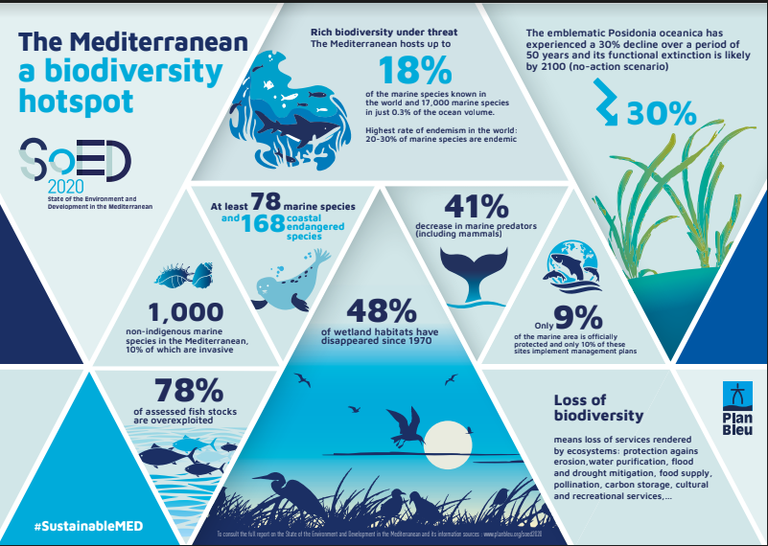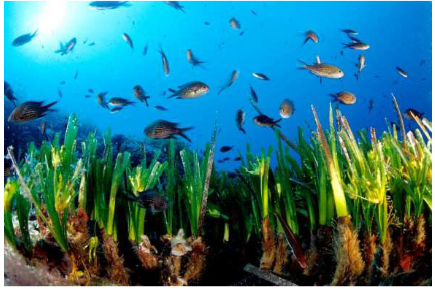The Mediterranean: A biodiversity hotspot and a global wealth to protect
Fishing practices pose a particular threat to fisheries : 78% of stocks are subject to overfishing,
while 18% of total catches are discarded. As for aquaculture, which is developing significantly,
impacts are not negligible with the use of wild species for farmed food fish, the transfer of
native species and the releases of nitrogen and phosphorus. The presence of more than 1,000 non-indigenous species also poses threats to biodiversity
There is an urgent need to radically change production and consumption patterns in the
Mediterranean region in order to make resolute progress towards sustainable and inclusive
development. This transformation makes it possible to focus on concerns related to climate
change, the protection of biodiversity, the circular economy and the transition to a blue /
green economy. This is in line with the United Nations 2030 Development Agenda and its
Sustainable Development Goals, as well as the recent Mediterranean Strategy for Sustainable
Development (MSSD).


